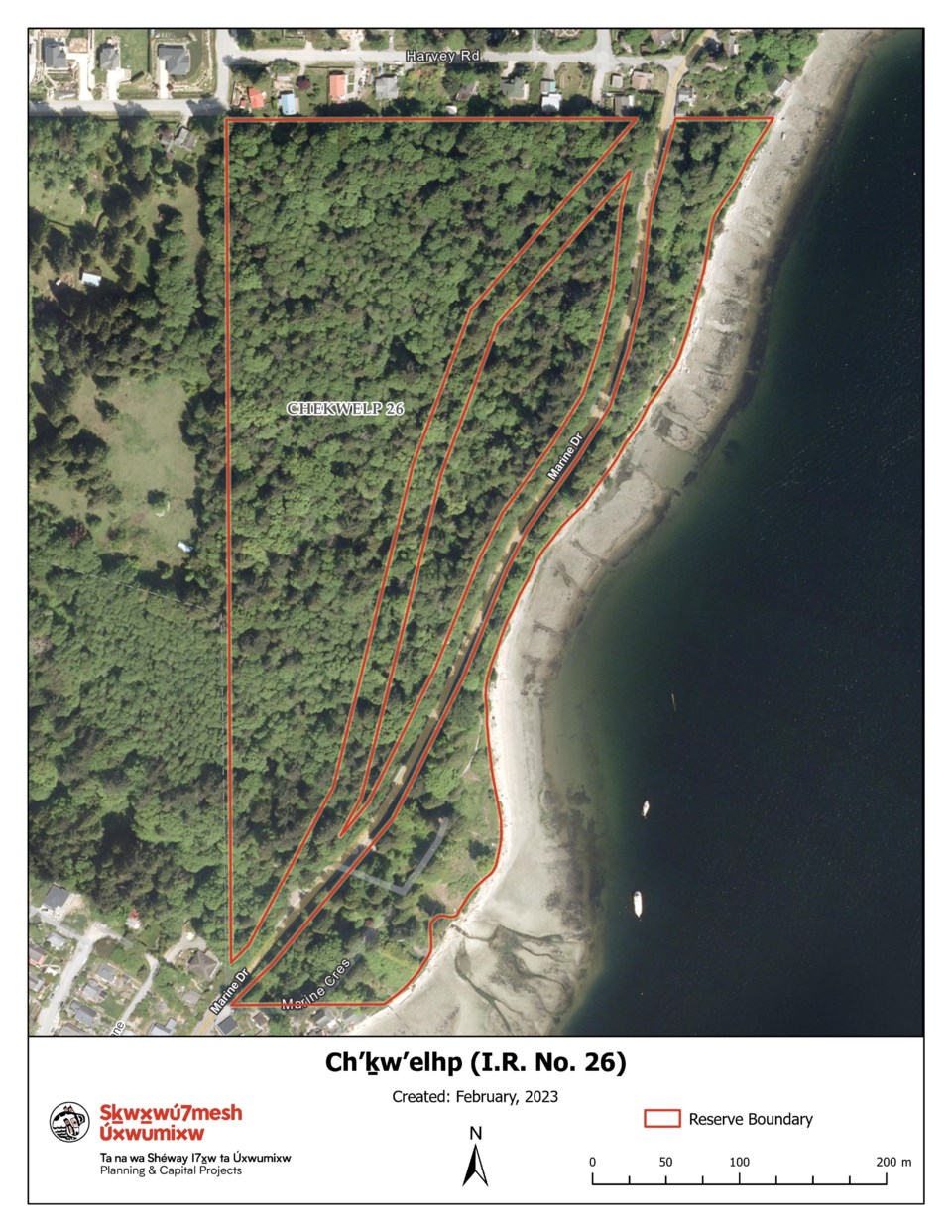As Sḵwx̱wú7mesh Úxwumixw (Squamish Nation) announced a year-long moratorium on third-party development proposals on 140 hectares of its land, its focus is turning to future use of its place of origin: ch’ḵw’elhp.
The Squamish Nation land reserve near Gibsons Landing runs along a section of both sides of Marine Drive south of Armours Beach.
Khelsilem, chair of the Nation's council, told Coast Reporter that the parcel in ch’ḵw’elhp has not been the subject of external development proposals, but has been previously explored for development purposes by the Nation. The Nation will spend the next year creating capital plans and land use strategies to guide future development for areas in Squamish, North and West Vancouver, and Gibsons Landing.
The March 29 press release from the Nation’s development arm, the Nch'ḵay̓ Development Corporation, and its affordable housing provider, Hiy̓ám̓ Housing, said they are looking for firms to help it formulate its plans.
Khelsilem said ch’ḵw’elhp is significant as it is one of the founding villages for the Squamish people and home of their origin stories. After the story of the great flood, the survivors repopulated the territory. One of the places they began was around the Gibsons Harbour.
“We've come a long way from that, but it has a special place in the hearts and minds of a lot of Squamish people, because it is the place that our people originated from,” Khelsilem said.
“It's also an area that our people have always wanted to return home to. We don't have any sort of permanent presence there right now. And there's a dark history … of the previous leases that used to be on the site and how those came about through the corruption within the federal government,” Khelsilem said. “But I think we're excited to re-explore what can happen on some of our lands there, and then potentially, bring those back to our community for engagement. And then potentially develop more long-term plans to utilize all of our lands.”
The land reserve was allocated based off the population of the Squamish Nation at the time, Khelsilem explained. But the federal government’s formula came after successive waves of diseases that swept through the northwest coast and reduced the Squamish population.
“It was a very paternalistic, very colonial way of allocating reserve lands,” Khelsilem said. “And so the size of the reserve now doesn’t reflect, I think, the true ownership of those lands as Squamish Nation lands.”
It’s still too early to say what engagement with Squamish Nation members will look like. It’s also too soon to say who housing would be for, but “there is a desire by Squamish people to be able to have access to those lands for potential housing of our community members,” Khelsilem said. “There might be potential for economic development on those lands, but that's part of the analysis that will happen over the next year.”
Though Squamish Nation’s territory on the Sunshine Coast also includes Keats and Gambier islands, those areas are not being considered for development.
Future updates on the Nation’s land use strategies will be made available in a public announcement.



